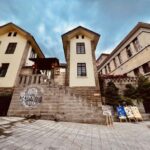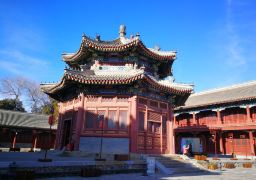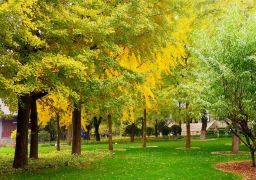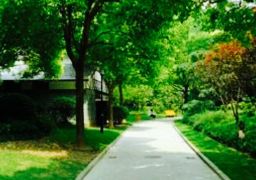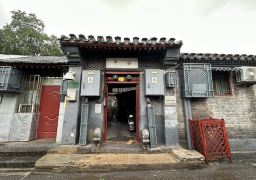The Lingquan Temple in Lingquan Scenic Area, the hometown of Avalokitesvara in China, is currently the core scenic spot. The temple was built in the early years of Kaihuang in the Sui Dynasty (between 581 and 600 AD). It has a long history of more than 1,400 years. The predecessor of Lingquan Temple was also known as Zisheng Zen Temple. In 1268 AD, during the Baoyou period of the Southern Song Dynasty, there was a spring (now in the Guanyin Hall) on the cliff at the top of Lingquan Mountain.
The spring water is deep blue, sweet and delicious. It never overflows or dries up all year round. Su Dongpo, a great poet of the Northern Song Dynasty, once wrote a poem named ‘Seven Springs’ to praise this water: ‘Spring, spring, spring, spring, spring, spring, spring. Since ancient times, years are not recorded. The jade axe splits open the marrow of heaven and earth, and the golden hook catches the saliva of the old dragon. ‘ This attracted ordinary people to come here. In 1490 AD, during the third year of Hongzhi in the Ming Dynasty, it was renamed Lingquan Temple and has been in use ever since. The temple is divided into upper and lower temples and is built on the mountain as a whole. During the three major incense fair festivals on February 19th, June 19th, and September 19th of the lunar calendar every year, tourists and believers gather at Lingquan like clouds. The scene is spectacular. Opening hours: Open from 08:30 to 17:00 all year round. The specific business status is subject to the opening situation on that day. Preferential policies: For the elderly: Elderly people over 60 years old on non-national statutory holidays can enter for free with valid certificates. Suining local tourists: Tourists from three counties and two districts of Suining can enter for free with valid certificates. Tourists from Tongnan District of Chongqing: They can enter for free with valid certificates. For children: Those under 1.1 meters in height are free. For the disabled: For the blind and those with severe physical, intellectual, and mental disabilities, one accompanying person is allowed to enter the scenic area for free. For military personnel: Active-duty soldiers and retired soldiers can enter for free with valid certificates. For religious people: They can enter for free with certificates of conversion (must be issued by the people’s department or the management committee of Lingquan Temple or Guangde Temple). For journalists: They can enter for free with press cards (requiring interview tasks). For tour guides: They need to show the team operation plan and enter for free. For the people’s police (including police assistants): They can enter the park for free with relevant certificates.Lingquan Scenic Area, the Hometown of Avalokitesvara in China
The Lingquan Temple in Lingquan Scenic Area, the hometown of Avalokitesvara in China, is currently t[...]




